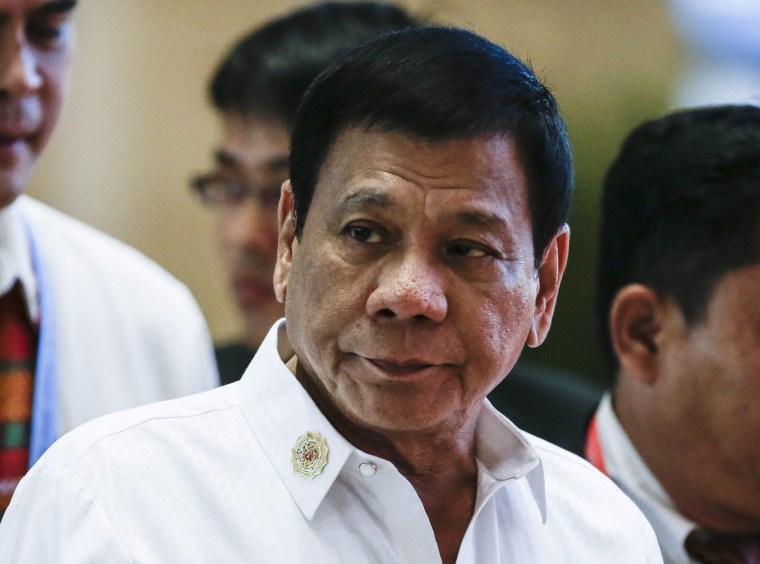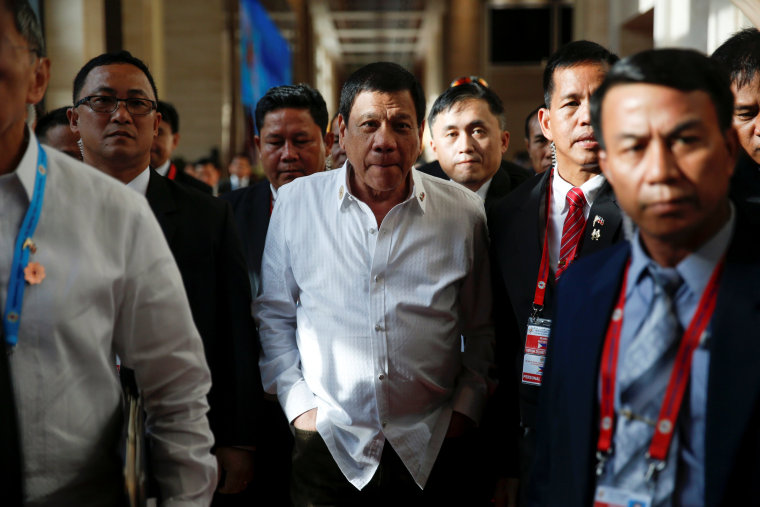VIENTIANE, Laos — Philippine President Rodrigo Duterte expressed regret Tuesday over his crude remark while referring to President Barack Obama — a rare display of contrition by a politician whose wide arc of profanities has unabashedly targeted world figures including the pope.
In a statement read out by his spokesman, Duterte said that while his "strong comments" in response to certain questions by a reporter "elicited concern and distress, we also regret it came across as a personal attack on the U.S. president."

Duterte had made the untampered remarks Monday before flying to Laos, where he is attending a regional summit. He had been scheduled to meet Obama separately, but Obama indicated he had second thoughts.
On Tuesday, Duterte said both sides mutually agreed to postpone the meeting.
Even though Duterte's latest comment does not amount to an apology, the expression of regret is unusual for the tough-talking former mayor, who is unapologetic about his manner of speech and liberally peppers his casual statements with profanities such as "son of a b****" and "son of a wh***."
But perhaps Duterte's aides realized it would be unwise to take on the most powerful official in the world, and there would be a price to pay for insulting the president of the United States.
The U.S. is one of the Philippines' largest trading partners and a key security ally in its fight against terrorism in the country's south. Manila also needs Washington's help in dealing with a more assertive China in the disputed South China Sea.
Duterte likely had realized his folly by the time he arrived in the Laotian capital of Vientiane on Monday night.
Speaking to reporters here, he said, "I do not want to quarrel with the most powerful country on the planet," but immediately took his typical combative approach by saying: "Washington has been so liberal about criticizing human rights, human rights and human rights. How about you? I have so many questions also about human rights to ask you. So ... people who live in glass houses should not" throw stones at others.
He said if the White House had problems with him, it could have sent him a diplomatic note and let him respond. "There's a protocol for that," Duterte said. "You just cannot shoot a statement against the president of any country."
But by Tuesday, he had done a complete U-turn in the tone of his statement.
"We look forward to ironing out differences arising out of national priorities and perceptions, and working in mutually responsible ways for both countries," the statement said.
The flap over Duterte's remarks started when a reporter asked him how he intends to explain the extrajudicial killings of drug dealers to Obama. More than 2,000 suspected drug dealers and users have been killed since Duterte launched a war on drugs after taking office on June 30.
Related: Philippines Drug-War Deaths Spike as Criticism Mounts
In his typical foul-mouthed style, Duterte responded: "I am a president of a sovereign state and we have long ceased to be a colony. I do not have any master except the Filipino people, nobody but nobody. You must be respectful. Do not just throw questions. Putang ina, I will swear at you in that forum," he said, using the Tagalog phrase for "son of a b****" or "son of a wh***."
Duterte has previously cursed Pope Francis and U.N. Secretary-General Ban Ki-moon.
"Who is he (Obama) to confront me?" Duterte said, adding that the Philippines had not received an apology from the United States for misdeeds committed during its colonization of the country.
